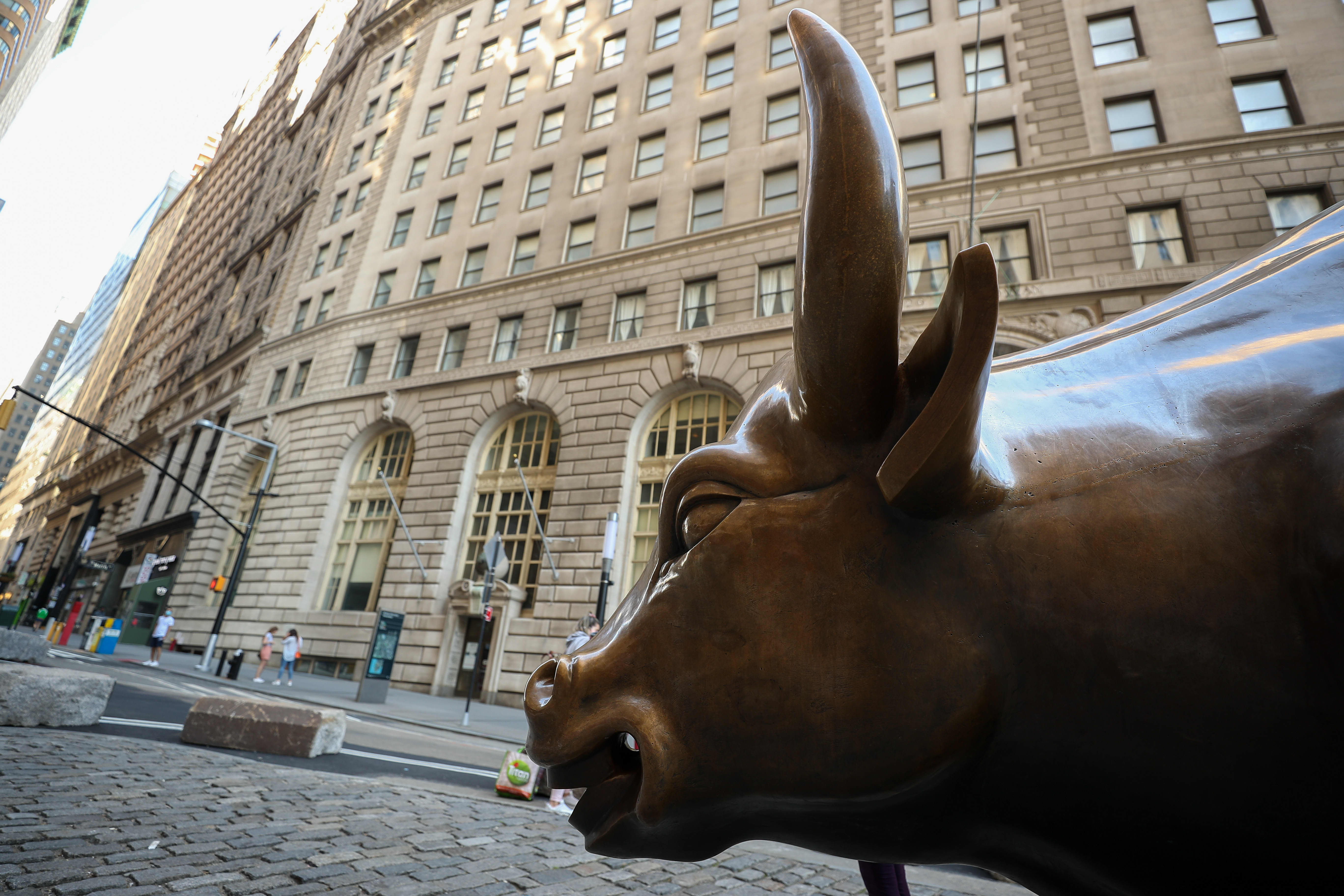
The Wall Street Bull (The Charging Bull) is seen during Covid-19 pandemic in New York, on May 26, 2020.
Tayfun Coskun | Anadolu Agency via Getty Images
Money is pouring into stocks through exchange-traded funds.
You can thank the potential vaccines. Money is pouring in because U.S. investors who have been reluctant to put money into equities are now stampeding into stocks on the belief that that the "Covid winter" of 2020 will be followed by the "Reopening spring" of 2021, and many are choosing ETFs as that investment vehicle.
The Exchange Traded Fund (ETF) industry in the U.S. surpassed $5 trillion in assets under management last week, a new record. Record highs for stocks was a big help, but over $400 billion in new money has poured into ETFs this year, only the second time it has passed $400 billion in a single year. By comparison, inflows stood at $246.6 billion at this same point last year, according to ETF.com.
Heavy inflows into stocks in November
Inflows into plain-vanilla equity ETFs like the S&P 500 (SPY), Vanguard Total Stock Market (VTI), and the Russell 2000 (IWM) have been particularly strong this month.
Equity ETF inflows (November)
- SPDR S&P 500 (SPY) $15.1 billion
- Vanguard Total Stock Market (VTI) $2.8 billion
- iShares Russell 2000 (IWM) $1.6 billion
Source: ETF.com
Investors believe earnings are too low for 2021
Animating the strong inflows into stocks: A belief that earnings for market leaders like technology will stay strong in 2021 but that beaten-up sectors like energy, banks, and industrials will also see a 2021 rebound that brings earnings back to 2019 levels — and beyond. Earnings estimates for the S&P 500 are expected to be down 16% this year but are expected to rebound in 2021 to levels slightly above the 2019 historic highs:
S&P 500 earnings
- 2019: $163
- 2020 (est): $137
- 2021 (est.) $168
Source: Refinitiv
Many — like Mike Wilson from Morgan Stanley — believe that these estimates are way too low, just as they have been through most of 2020.
"We have higher estimates for next year," he told CNBC's "Closing Bell." "We're around $175 for the S&P 500, we have a $183 bull case, so I think we're probably leaning toward that bull case with these vaccines getting out there faster than maybe we were expecting, so $180 in earnings power next year is a big number," he said.
Outflows from bonds and gold
At the same time, there have been outflows from Treasury bond funds and gold ETFs.
Treasury/Gold outflows (November)
- iShares 20+ Treasury (TLT) $1.4 billion
- SPDR Gold Trust (GLD) $1.4 billion
- iShares 7-10 Year (IEF) $1.3 billion
Source: ETF.com
"People are moving away from safe harbor sectors [bonds] and into equities," Doug Yones, head of exchange-traded products at the New York Stock Exchange, told me.
Jan van Eck of, CEO of VanEck Associates, was even more forceful. He said that after years of putting money into bonds, bond investors may finally start looking for the exits: "The forty percent of your portfolio that is supposed to be in bonds is broken," he told CNBC's "ETF Edge." "No one wants to own bonds with rates this low."
Many may be fleeing bond funds, but it's a relatively recent phenomenon. Bonds have been enjoying inflows for a number of years and still have healthy inflows for the full year.
Inflows in 2020
- Fixed Income $181.9 billion
- Equity $167 billion
- Gold $33 billion
Source: NYSE
ETFs keep winning
One thing's clear — ETFs are becoming the preferred way to move money into — and out of — the markets. Mutual funds are still a $21 trillion business, versus $5 trillion for ETFs, but there's little doubt ETFs are on the way to $10 trillion in assets under management in the next several years.
"I think we could easily add another trillion or two [going into 2021]," Yones told me.
Subscribe to CNBC PRO for exclusive insights and analysis, and live business day programming from around the world.